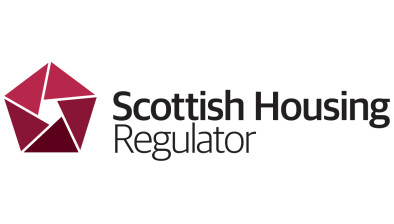Regulator outlines priorities to Holyrood committee

The Scottish Housing Regulator (SHR) has written to the Scottish Parliament’s local government, housing and planning committee after the committee asked its stakeholders to provide information on their work and priorities over the summer.
In its response, the Regulator provided detail on the financial implications for local government, planning and housing of the continuing pandemic.
The committee was especially keen to hear of examples of innovative practices arising from necessity over the last 18 months, which should continue beyond the pandemic to inform the committee’s approach to considering the budget.
The Regulator wrote: “All our staff and the board have worked remotely since March 2020 and continue to do so, in line with Scottish Government guidance. Like many other organisations, we experienced the challenges of staff wellbeing and connectivity during the pandemic, but on the whole, we have continued to deliver effectively against our statutory objective to protect the interest of tenants and other users of social housing services such as people experiencing homelessness and Gypsy Travellers.”
The Regulator admitted it is currently prioritising its work to fit with available staff resources as it struggles to recruit staff.
The letter added: “We are currently recruiting the additional staff we need to deliver our priorities, although this is happening at a much slower pace than we anticipated, as we rely on HR services from the Scottish Government, which are under considerable pressure.”
Earlier this month, the Regulator published research from its National Panel of around 500 tenants and service users which gave a snapshot of the pandemic’s impact on landlords’ services and tenants’ quality of life.
“The feedback in this report underlines just how difficult the last year has been for tenants and landlords alike and provides context for our annual regulatory risk assessment of social landlords and our continued dialogue with tenants and landlords,” it said.
The Regulator said its work with the Social Housing Resilience Group has been instrumental in helping social landlords respond to the pandemic as challenges unfolded. A key aspect of the work is a dashboard of information that it collects and publishes regularly about the impact on social landlords. The March dashboard highlighted falling rent arrears, an increase in lets being made and an increase in homeless applications. The first quarterly dashboard for 2021/22 was published in early August.
At the end of March 2021, the Regulator published plans for every social landlord in Scotland setting out how it will engage with each of them during the coming year. For the first time, it also published a ‘Regulatory Status’ for each Registered Social Landlord (RSL), which describes whether a landlord is judged to comply with Regulatory Standards. SHR reported that 140 RSLs are compliant (with two under review), seven RSLs are working towards compliance, and SHR will continue its statutory intervention in two RSLs.
In May 2021, the Regulator published its national analysis of RSL finances and reported that most RSLs have coped well over the last year with the short term financial impacts of the pandemic.
“But, RSLs need to plan to respond to future financial risks and challenges as they recover the pandemic in managing their resources to ensure financial well-being, while maintaining rents at a level that tenants can afford to pay,” it said.
The Regulator added: “The climate agenda and zero emissions is very high on our agenda. In particular how important change including targets can be achieved, while keeping social housing affordable for tenants and service users. We have heard from landlords that funding the likely costs for decarbonising existing homes and planning that for will be very challenging.
“We monitor social landlords’ performance against the Scottish Government’s Energy Efficiency Standards for Scottish Social Housing (EESSH) and published the indicators we will use to do this in March 2021 as landlords work towards the achieving the current standard by December 2032.”
On homelessness, the Regulator said it is engaging with every local authority as they each deal with the impact of the pandemic on services. It is also working with the Scottish Human Rights Commission around briefing for landlords on human rights and with the Scottish Federation of Housing Associations and other representative bodies on developing equalities guidance for landlords.
The Regulator is due to lay its annual report and accounts for 2020/21 before Parliament by the end of October 2021.







